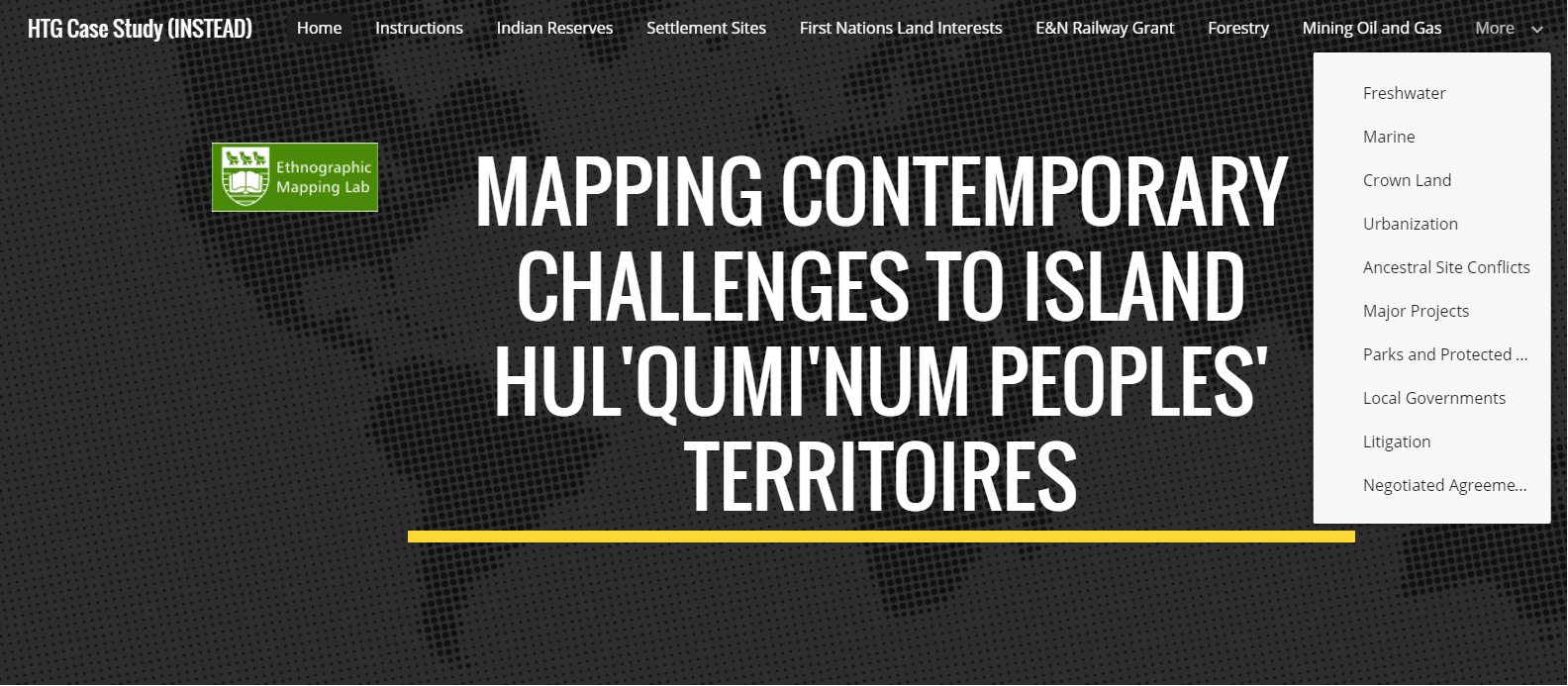Indigenous Stewardship of the Environment and Alternative Development (INSTEAD) Case Study

Contemporary territories of Indigenous peoples are often faced with innumerable cummulative impacts from land development, extractive industry, urban expansion, and exercise of local, provincial and federal government jurisdictions. Working with publically available datasets, researchers in UVic's Ethnographic Mapping lab have created a series of maps to illustrate these issues for the territories of the Hul'q'umi'num' peoples on Vancouver Island and the Gulf Islands, who are engaged in ongoing efforts to exersie their rights of free prior and informed consent with respect to their ongoing relationship to their unceded territories.
This project has been developed in association with the INSTEAD and CICADA projects, and the UVic Ethnographic Mapping Lab, and is an accompaniment to a forthcoming paper by Brian Thom and Kathleen Johnnie titled 'Implementing Contemporary Indigenous Territories: Mapping the Aspirations and Challenges of Island Hul'qumi'num Peoples, in Indigenous Stewardship of Environment and Alternative Development, edited by Evodia Silva-Riveria, Katie Sinclair and Colin Scott (submitted Sept 2016).
Visit the project's website for more information and a remarkable series of maps.
Resources
Centre for Indigenous Conservation and Development Alternatives
Indigenous Stewardship of the Environment and Alternative Development
Mapping Contemporary Challenges to Island Hul'q'umi'num' Peoples Territories
